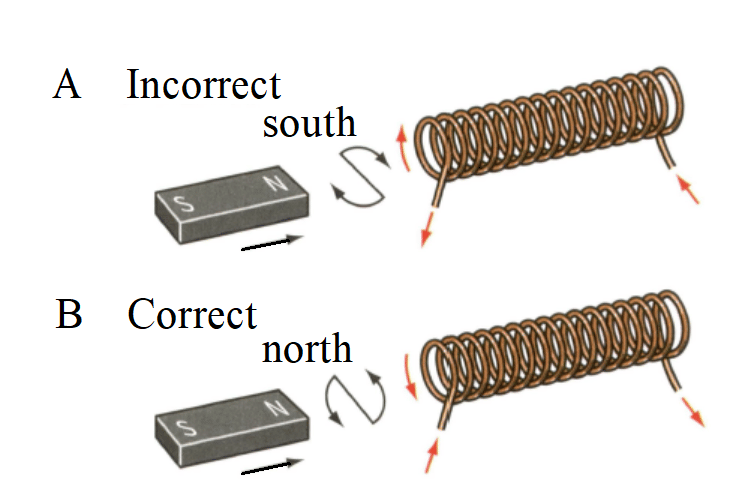A wire of length is moved through a distance of in a direction at right angles to its length in the space between the poles of a magnet, and perpendicular to the magnetic field . The flux density is If this takes , calculate the magnitude of the average induced e.m.f. across th ends of the wire.

Important Questions on Electromagnetic Induction
Figure, shows a search coil with turns and cross-sectional area . It is placed between the poles of a strong magnet. The magnetic field is perpendicular to the plane of the coil. The ends of the coil are connected to a voltmeter. The coil is then pulled out of the magnetic field, and the voltmeter records an average induced e.m.f. of over a time interval of
Calculate the magnetic flux density between the
poles of the magnet.
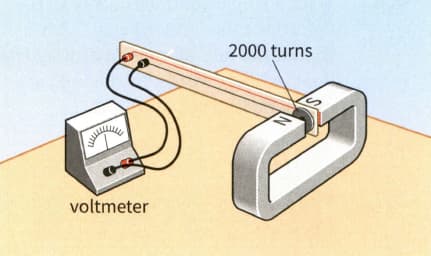
Using a search coil to determine the magnetic flux density of the field between the poles of this magnet.
Use the ideas in the previous topic to explain what happens if you stop pushing the magnet towards the coil shown in Figure and you pull the magnet away from the coil.
Moving a magnet towards a coil: the direction of the current caused by the induced . is as shown in not
Draw a diagram to show the directions of the current caused by induced e.m.f. and of the opposing force if you now try to move the wire shown in Figure, upwards through the magnetic field .
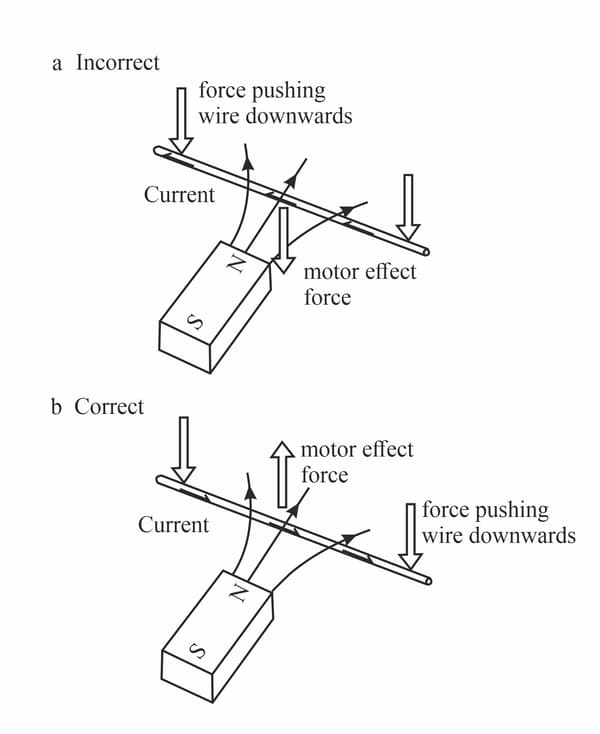
Moving a wire through a magnetic field: the direction of the current is as shown in not
A bar magnet is dropped vertically downwards through a long solenoid, which is connected to an oscilloscope. The oscilloscope trace shows how the e.m.f. induced in the coil varies with time as the magnet accelerates downwards.
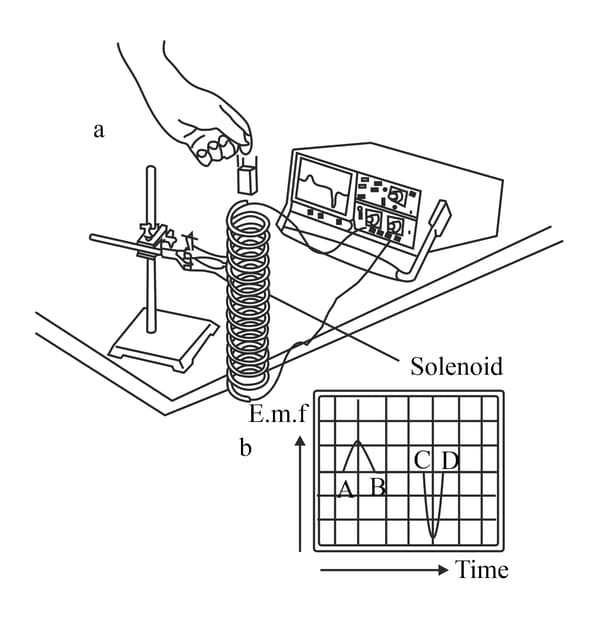
A bar magnet falls through a long solenoid. The oscilloscope trace shows how the induced e.m.f. varies with time.
Explain why an e.m.f. is induced in the coil as the magnet enters it (section AB of the trace).
A bar magnet is dropped vertically downwards through a long solenoid, which is connected to an oscilloscope . The oscilloscope trace shows how the e.m.f. induced in the coil varies with time as the magnet accelerates downwards.
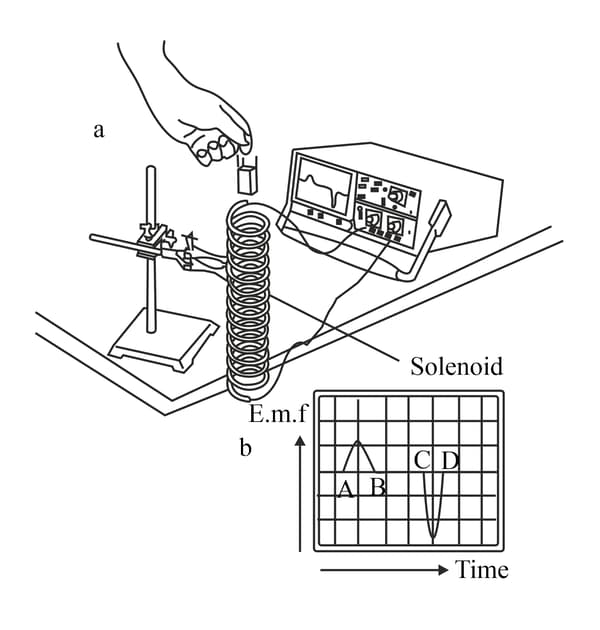
A bar magnet falls through a long solenoid.The oscilloscope trace shows how the induced e.m.f. varies with time.
Explain why no is induced while the magnet is entirely inside the coil (section BC).
A bar magnet is dropped vertically downwards through a long solenoid, which is connected to an oscilloscope. The oscilloscope trace shows how the e.m.f. induced in the coil varies with time as the magnet accelerates downwards.
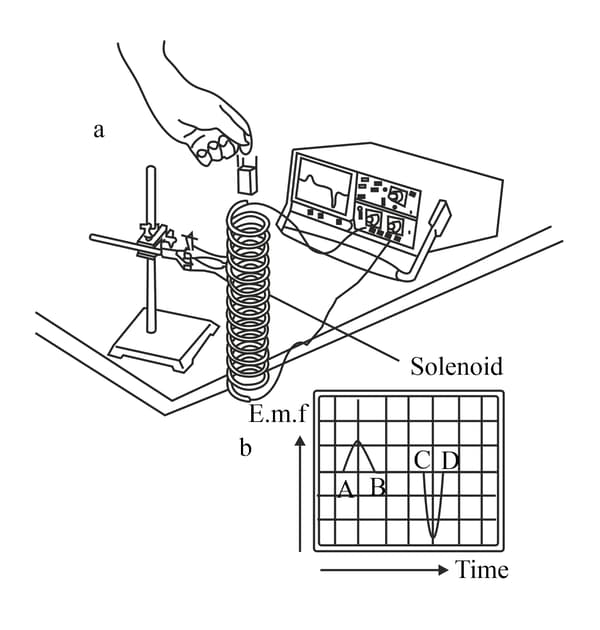
A bar magnet falls through a long solenoid. The oscilloscope trace shows how the induced e.m.f. varies with time.
Explain why section shows a negative trace, why the peak is greater over this section, and why represents a shorter time interval than AB.
You can turn a bicycle dynamo by hand and cause the lamps to light up. Use the idea of Lenz's law to explain why it is easier to turn the dynamo when the lamps are switched off than when they are on.
Figure, represents a coil of wire being rotated in a uniform horizontal magnetic field. Copy and complete the diagram to show the direction of the current caused by induced e.m.f. in the coil, and the directions of the forces on sides and that oppose the rotation of the coil.
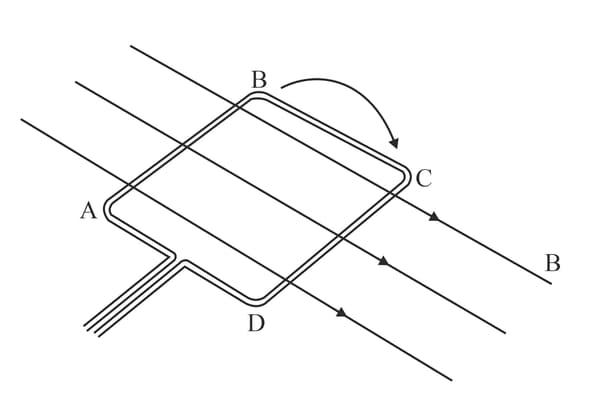
A coil rotating in a magnetic field.

